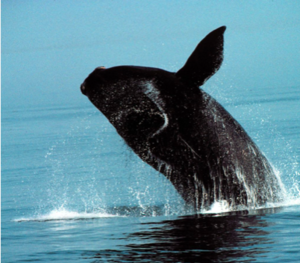New England Aquarium Lecture Series: Marine Mammals in the Anthropocene
Thursday, Jun 07, 2018 7:00p -
8:00p
Where:
New England Aquarium
1 Central Wharf
Boston, MA 02110
Admission:
$Registration required
Categories:
Lectures & Conferences
Event website:
http://www.neaq.org/learn/lectures/upcoming-lectures/
Recent marine extinctions suggest that humanity does not have a good record of coexisting with marine mammals. Given continuing human population growth, ocean industrialization will expand, raising questions about the balance between human needs and wildlife. This is a battle that marine mammals are currently losing, but there are actions we can take to change the outcome.
First, we scientists should get better at telling our story—why wildlife matters, how marine mammals are a critical part of a functioning ecosystem, why human activities continue to threaten both marine mammals and the oceans, and no, the whales are not saved yet. Endangered species need constituencies and public support, and most don’t have enough. Second, assessment methods for rare species need improvement. Elegant population and viability models may be of limited utility in small populations because inherently small sample sizes yield large variances with little ability to detect trends. Other robust biological signals can be better at predicting impending changes in small populations. Third, small populations of marine mammals require more protected habitat, better definitions of what that means, and prohibitions on harmful activities in those areas. In some marine mammals this may mean protecting migratory corridors, from breeding to feeding grounds, across international boundaries. Fourth, the permitting and funding of rare population conservation and recovery efforts are inadequate, partly because of limited public support. Finally, although counterintuitive, scientists should work with all stakeholders, including the oil, gas, and seismic industry, the fishing industry, wind utilities, and aquaculture facilities, to help them make their activities less detrimental. We do not yet have a collective view of how marine mammals will survive in an industrialized ocean, but if we take these steps, the next generation of scientists will be able to bring a vision of coexistence closer to reality.
-

SponsoredMother's Day Amazing Commonwealth Avenue Walking Tour
Saturday, May 10, 2025 2:00p
Alexander Hamilton Statue
-

Sponsored9 Spring Festivals Outside of Boston Accessible via the MBTA Commuter Rail
Friday, May 09, 2025 goes until 05/31
Massachusetts
-

SponsoredCelebrate Mom with a One-of-a-Kind Newbury Street Walking Tour!
Saturday, May 10, 2025 9:00a
Outside the Newbury Hotel entrance
-

SponsoredHow Meditation Can Transform Your Life Free talk with guided meditation — presented by Self-Realization Fellowship
Friday, May 09, 2025 7:00p
Old South Church
-

SponsoredTanglewood Marionettes present The Dragon King (Free)
Saturday, May 10, 2025 10:30a
John F. Kennedy Presidential Library
-

Sponsored -

Sponsored

